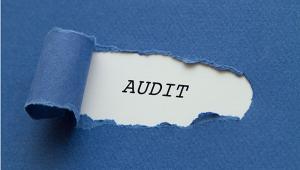04 February 2005
The Inland Revenue has denied that it was unable to cope with thousands of last-minute tax submissions this week, despite acknowledging that its website ground to a halt as the January 31 deadline loomed.
Revenue officials were forced to grant some taxpayers more time to submit self-assessment forms after thousands were unable to file details on-line because the department's website could not cope with a record volume of traffic.
Taxpayers who tried to file their return on-line but received a 'failure notice' have been given until February 14 to resubmit their details.
However, people who failed to get into the site or did not receive a 'failure notice' will be fined the statutory £100 for a late return. They could also be charged up to 7.5% interest on money owed to the Exchequer, because the Revenue received no evidence that they attempted to file a return.
Many people complained that they could not enter the site during peak hours, and accountants' bodies protested that the site was not up to the demands placed upon it.
The department admitted it had made no estimate of the number of last-minute submissions it would have to deal with.
The window for tax returns opened last April, and the Revenue encouraged people to submit their details early to avoid last-minute problems. But the department still received around 5,000 completed submissions per hour over the Internet on January 31 and over 210,000 on-line forms in the week before the deadline.
The Revenue has refused to accept that its system failed taxpayers. In the immediate aftermath, a spokesman told Public Finance that there would be 'absolutely no extension to the deadline' because the Internet service was 'working, albeit slowly'. He added: 'A deadline is a deadline – people have had nine months to file their details.'
Less than 24 hours later, the department issued a statement assuring those who received a 'failure notice' that they would be given more time.
But the spokesman refused to accept that amounted to an extension. 'Attempts to file forms that received a failure notice are considered as submissions,' he said.
Nine million people were required to submit tax returns, either on-line or by post, between April 2004 and January 31. Over 6 million had filed by December. Last year nearly 900,000 taxpayers missed the deadline.
Lie detectors 'could slash public sector fraud'
Civil service staff could soon be asked to use controversial 'lie detectors' to determine whether benefit claimants and other public service users are telling the truth.
The Department for Work and Pensions, Inland Revenue, Home Office and the Criminal Records Bureau are considering introducing new telephone technology, which measures stress levels in the voice to indicate whether someone is lying.
Senior Whitehall officials are interested in the technology's potential to slash public sector fraud such as illegal benefit claims, which were thought to cost the Exchequer over £3bn last year.
DWP minister Chris Pond said his department was 'in the early stages' of assessing the potential use of 'stress analysis technology'.
Private insurance firms have already begun using the technology and Capita, one of the government's biggest IT partners, acquired the rights to distribute the equipment to public bodies when it bought a separate firm, Brownsword, last November.
A spokeswoman for Capita said: 'We are not currently in negotiations with government departments, but we have held initial exploratory conversations.'
One Whitehall professional told Public Finance that other departments would be interested in using similar equipment if DWP trials proved successful. The Home Office, for example, 'could potentially check the legitimacy of passport or immigration applications', the source said. The CRB 'could use the system to determine the authenticity of background checks' on potential public sector employees.
But international academic studies of the equipment involved have questioned the accuracy of results and some countries have prohibited its use.
In 2003, the Commons Public Accounts Committee estimated that total UK fraud costs the Exchequer £11bn annually.
Defra now ready for foot and mouth
The Department for Environment, Food and Rural Affairs has made substantial strides in improving its capacity to deal with any future outbreak of foot and mouth disease, the National Audit Office has concluded.
In a new report, Foot and mouth: applying the lessons, published on February 2, the NAO says that Defra's contingency plan is now 'one of the best available' as a result of 'wide consultation with the farming industry, local authorities and other rural interest groups'.
But, the report cautions, more work needs to be done to produce a co-ordinated and co-operative approach if another outbreak on the scale of the disastrous 2001 epidemic should arise.
Auditor general Sir John Bourn said: 'Defra is now much better prepared than in 2001, but still has work to complete, for example to develop a new compensation system for culled animals, to link its central government contingency plans with those of local agencies.'
The department is, however, praised for taking steps to prevent the virus entering Britain via illegal meat imports – the suspected cause of the 2001 disaster – and for putting in place increased veterinary resources.
PFfeb2005



















